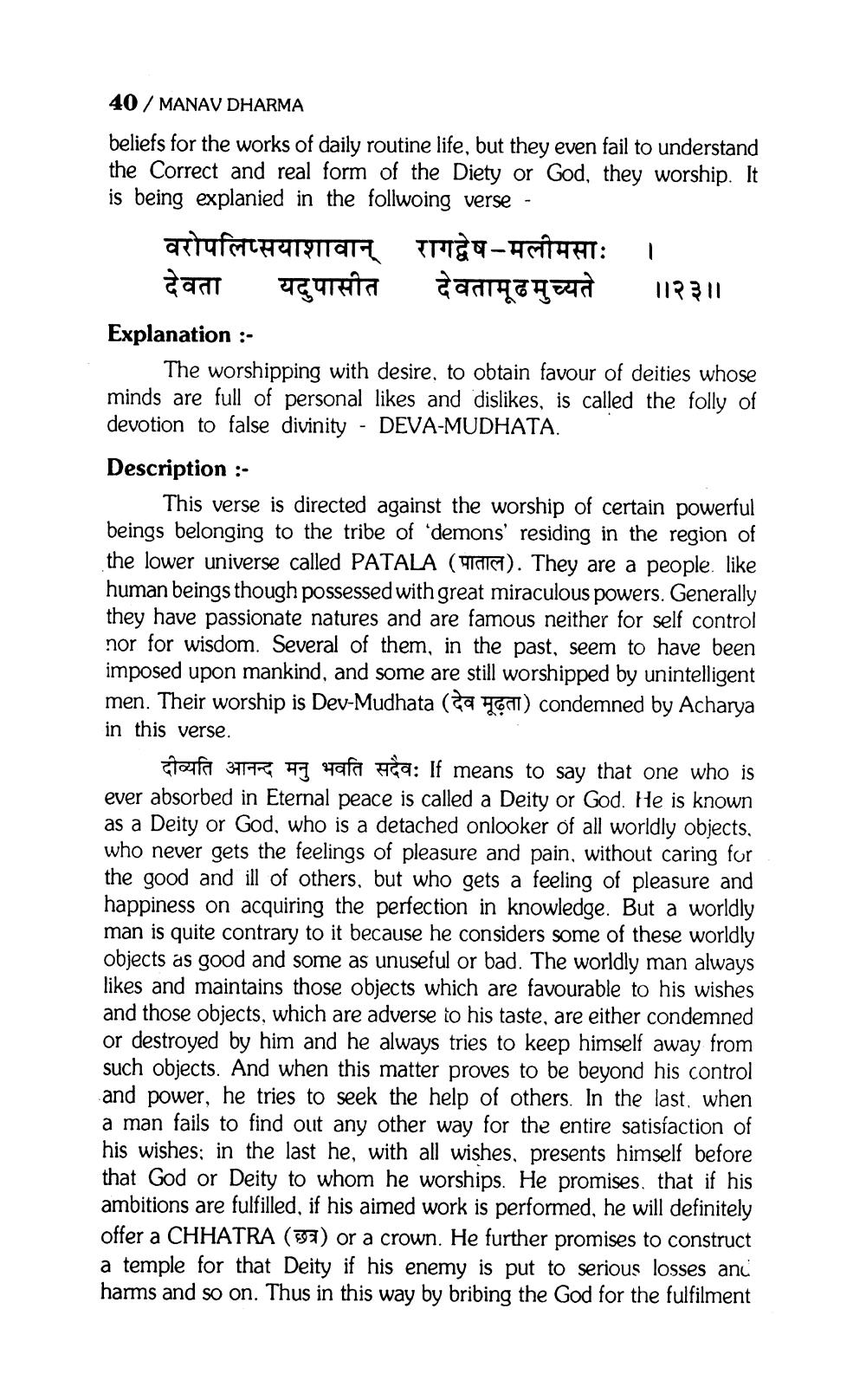________________
40/MANAV DHARMA
beliefs for the works of daily routine life, but they even fail to understand the Correct and real form of the Diety or God, they worship. It is being explanied in the follwoing verse
वरोपलिप्सयाशावान् रागद्वेष - मलीमसा: 1 देवतामूढमुच्यते
यदुपासीत
देवता
Explanation :
The worshipping with desire, to obtain favour of deities whose minds are full of personal likes and dislikes, is called the folly of devotion to false divinity- DEVA-MUDHATA.
॥२३॥
Description :
This verse is directed against the worship of certain powerful beings belonging to the tribe of 'demons' residing in the region of the lower universe called PATALA (I). They are a people. like human beings though possessed with great miraculous powers. Generally they have passionate natures and are famous neither for self control nor for wisdom. Several of them, in the past, seem to have been imposed upon mankind, and some are still worshipped by unintelligent men. Their worship is Dev-Mudhata (a) condemned by Acharya in this verse.
दीव्यति आनन्द मनु भवति सदैव : If means to say that one who is ever absorbed in Eternal peace is called a Deity or God. He is known as a Deity or God, who is a detached onlooker of all worldly objects. who never gets the feelings of pleasure and pain, without caring for the good and ill of others, but who gets a feeling of pleasure and happiness on acquiring the perfection in knowledge. But a worldly man is quite contrary to it because he considers some of these worldly objects as good and some as unuseful or bad. The worldly man always likes and maintains those objects which are favourable to his wishes and those objects, which are adverse to his taste, are either condemned or destroyed by him and he always tries to keep himself away from such objects. And when this matter proves to be beyond his control and power, he tries to seek the help of others. In the last, when a man fails to find out any other way for the entire satisfaction of his wishes; in the last he, with all wishes, presents himself before that God or Deity to whom he worships. He promises. that if his ambitions are fulfilled, if his aimed work is performed, he will definitely offer a CHHATRA () or a crown. He further promises to construct a temple for that Deity if his enemy is put to serious losses and harms and so on. Thus in this way by bribing the God for the fulfilment




